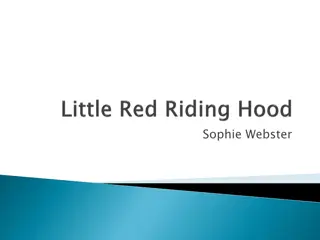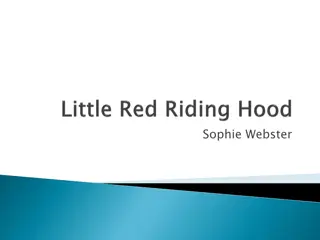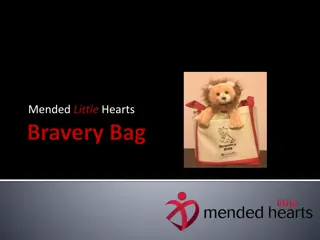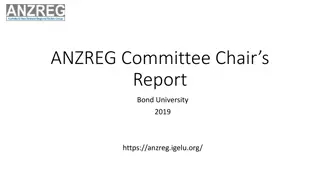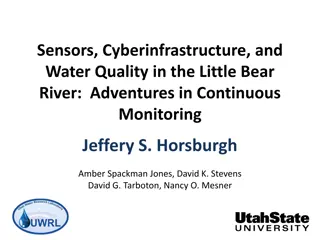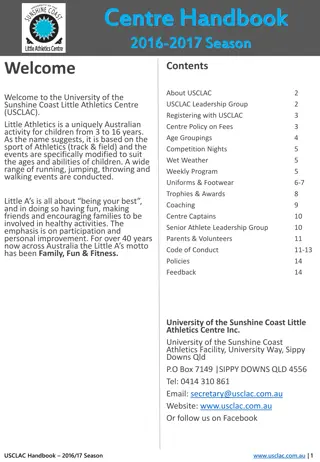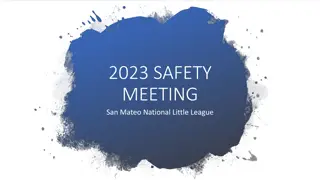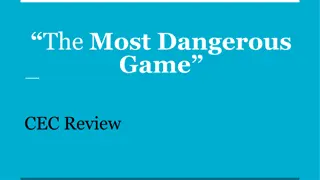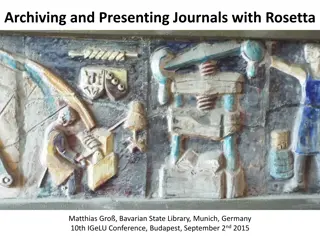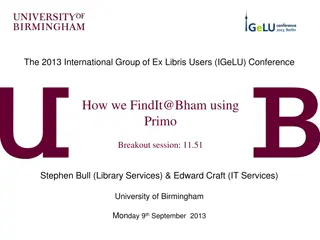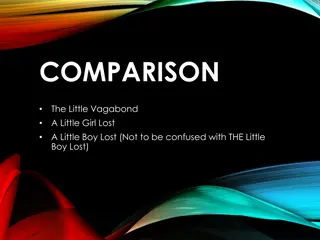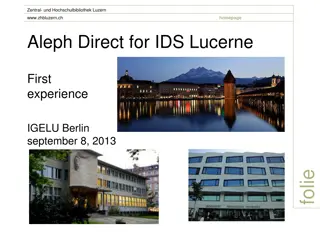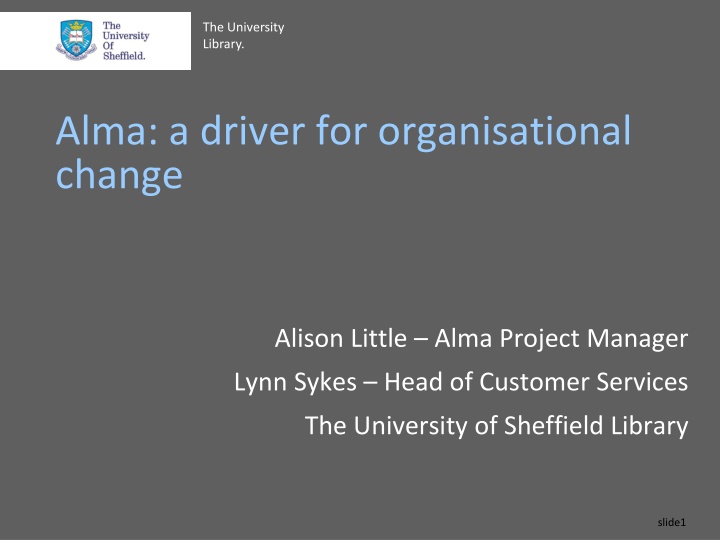
Organisational Change at The University Library: A Case Study
"Explore how The University Library at The University of Sheffield implemented Alma to drive organisational change, focusing on reviews, challenges, and project milestones. Discover the drivers for review, underlying principles, and the ongoing journey towards enhancing services and resources."
Download Presentation

Please find below an Image/Link to download the presentation.
The content on the website is provided AS IS for your information and personal use only. It may not be sold, licensed, or shared on other websites without obtaining consent from the author. If you encounter any issues during the download, it is possible that the publisher has removed the file from their server.
You are allowed to download the files provided on this website for personal or commercial use, subject to the condition that they are used lawfully. All files are the property of their respective owners.
The content on the website is provided AS IS for your information and personal use only. It may not be sold, licensed, or shared on other websites without obtaining consent from the author.
E N D
Presentation Transcript
The University Library. Alma: a driver for organisational change Alison Little Alma Project Manager Lynn Sykes Head of Customer Services The University of Sheffield Library slide1
The University Library. Agenda Our background. Why review? Our approach to review. Two case studies. Summary. slide2
The University Library. The University of Sheffield Russell Group University; Over 25,000 students; 6,000 faculty and staff; Academic departments across 5 faculties. slide3
The University Library. The Library. Member of RLUK; Operates from 5 physical sites; Emphasis on Library Everywhere ; 180 members of Library staff, 7 teams; Alma implementation June 2013; Alma implementation project began 2011; Process review project began 2011. slide4
The University Library. Why review? Complexity, Duplication of effort, Waste of resources. Increase Reduce Focus on service development, Ability to convert resources, Value, Capability to deliver strategic priorities. slide5
The University Library. Several drivers for review New/improved technologies Changing customer demand External influences Our organisation, purpose and priorities slide6
The University Library. Our review project Project launched November 2011; Ongoing . and a long way to go; Core project group involvement from 6 members of Library Management Group; ALL Library staff identified as stakeholders; Early 2012, the University established a Process Improvement Unit. slide7
The University Library. Our underlying principles. Our processes will maximise value, in terms of customer needs, costs and time. They will use the system to its best advantage for dealing with straightforward transactional functions. Automated workflows will focus on the majority of transactions and will undertake proactive monitoring to bring staff attention to exceptions and areas where decisions are required. People will add value, make judgements and manage risk. Use the system to its best advantage; Focus automatic workflows on the majority and provide additional people input on the exceptions; Allow people to add value, make judgements and manage risk. slide8
The University Library. Our underlying principles. Our processes will focus on overall workflows. Instead of concentrating on task and team based processes, they will take a trigger to delivery approach. This will prevent interruption and avoid duplication of work. This approach will optimise transparency and trust amongst those staff involved in the various stages of the workflow, it will also simplify the management of workflows and improve performance in overall delivery to the customer. Avoid duplication of work and add ons ; Prevent interruption between stages of the workflow; Optimise transparency of actions to related staff; Be based on trust between individuals working on different areas of the workflow. slide9
The University Library. Our underlying principles. Our processes will be responsive to customer needs. They will be future proof and under ongoing review. Processes capable of flexibility can be driven by continuous service improvement, enabling responsiveness to both our customers needs and to the changing external environment. Driven by continuous service improvement; Reviewed on an ongoing basis; Responsive to the environment in which we work. slide10
The University Library. Our Approach Early 2012 Library Training Hour session to Library staff Myself and colleague from Process Improvement Unit Prior to any events Prior to any widespread understanding of Alma Feedback very mixed Early 2013 Library Training Hour session to Library staff Myself, a fellow facilitator and other Library colleagues After some events had taken place After additional localised review More widespread understanding of Alma Feedback much more positive slide11
The University Library. Our Approach Events (1-2 days) with stakeholders; 2 facilitators for each session; Working through of current situation; Staff reported this as very useful! Recording problems and good ideas ; Working through the ideal scenario; Working through a realistic scenario; Recording actions and a follow up meeting; Re-reviewing, as necessary. slide12
The University Library. Case study 1 - Materials Funds Review, May 2012. Changed the way we pay for journal big deals Over 1.2m, now paid from 1 fund previously paid from 49 funds; Now pay 1 line for an invoice previously 1 line per journal title. Feedback from participants: Valuable use of time; Positive exchange of ideas and understanding of other stakeholders involvement; Perceived barriers understood. slide13
The University Library. Case study 1 - Materials Funds Review, further progress Document supply changes as a direct result of the functionality of Alma Previously 46 different document supply funds; Previously cost recorded for each transaction on the system; Moved to (trial) 1 document supply fund; 1 payment per invoice from the British Library. slide14
The University Library. Case study 2 Library overdues and invoices, November 2012. Existing situation: Responsibility to renew the item with the patron; No distinction between items required by another patron and non-requested items; Dynamic nature of loans could lead to confusion for patrons. slide15
The University Library. Process Review Wide range of staff involvement Mapped existing workflow Highlighted areas of inefficiency Mapped future workflow slide16
The University Library. Book removed from account Invoice 14 days after pro-forma Existing workflow Invoice Patron borrows a book Shelves checked by staff and book prices found Pro-forma 14 days after 3rd overdue Pro-forma invoice 2 days before due date Sent to all patrons Pre-over due letter 3rd overdue 7 days after second Shelves checked by staff 3rd overdue 1st over due when 1day overdue 1st overdue To allow for days grace 2nd overdue 2nd overdue 7 days after first Automatic via email slide17
The University Library. Main areas of inefficiency Overdues/fines for non requested items Series of overdues Proforma invoices/Invoices Confusing patron blocks Emphasis on patron to manage account slide18
The University Library. What happened next? We waited for Alma .... and then re-reviewed slide19
The University Library. New workflow Patron borrows a book Yes Pre overdue 2 days before due date Is it requested? Book due email on due date No Paton weekly borrowing activity email After 35 days Lost item notification After 42 days Lost item bill patron invoiced slide20
The University Library. Benefits realised by Alma Automatic renewal of non requested items Weekly borrowing activity statement Fines now only on requested items However .. slide21
The University Library. Hoped for future benefits Further integration with University Finance system; Capability to add book prices to lost item bill. slide22
The University Library. Summary. A process review is a good thing! Start early but expect to revisit A re-review is also a good thing! Benefits gained from all our reviews slide23
The University Library. Questions? slide24


